The 38-year-old man limps. He is on his knees because he had surgery a week ago for a problem in his groin. He walks along a path he helped to restore, contrasting with murals of birds and coloured stones. "They killed four people on that corner," he says, pointing to the intersection of narrow, steep streets that marks the end of the entrance to the Brisas de Mayo neighbourhood, one with a history of heightened violence in Cali's Comuna 20.
Conforme a los criterios de

(Lea esta historia en español, aquí)
His name is Victor Hurtado, but he goes by Neneco. He carries two posters in his left arm, one of birds he has photographed and the other of the dangers of nature. He unfolds them every time he sees a visitor: "We have to show the reality, the before and after of what we have done.

Dani' Lazo is a social leader who encourages young people to learn about sustainability and technical skills.
Foto:Santiago Saldarriaga. EL TIEMPO
Two years ago, five people were killed and three injured on this corner. Neneco was one of them. "I had two bullets in my head and lost part of my brain," he says. The news made national headlines. "It was the only time the former mayor and most of the media came," says a woman who asked not to be named.
Today, the place seems to have a new face. The corner is an invisible boundary that separates the so-called heart of the banana plantation - so called because it was a banana plantation before it was a settlement - from the Indio River and the new Guayabales Ecopark. For the past four years, leaders like Neneco have been trying to heal these gang divisions through rehabilitation and community tourism. The idea is working, so much so that residents say the number of disputes has dropped by up to 70 per cent.
As we speak, three young men arrive, one of them shirtless, with a kind of knife in the back of his trousers, and a little lost, perhaps under the influence of some substance.
-Don't forget to tell him about recycling, he says to Neneco.
-Don't worry, you know I will, he replies, telling him to go to the soup kitchen so someone can help him. "It is because of them that we are looking for real change, he continues.
***
Around the corner is a wider street. "This side is legal," a woman says from a window. A thin man, almost six feet tall, in a blue T-shirt and cap, greets her. He is serious and wants to talk. He has a special energy: people greet him and even ask his permission for various requests, such as paint for the house or food.
His name is Dani Lazo. He lost an eye in the 2021 riots. Some of the residents of community 20 participated in the borders. In fact, on some of the walls you can read phrases alluding to 'resistance'.
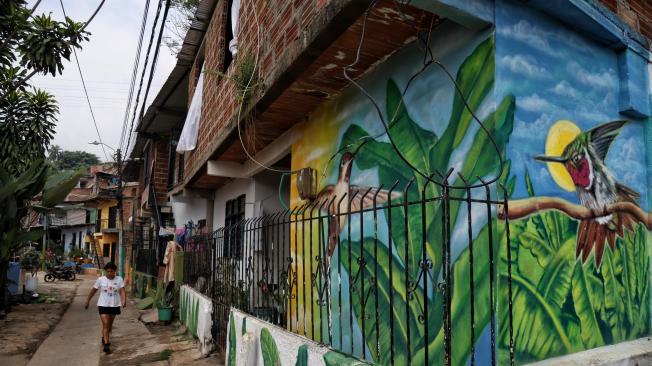
Leaders in Comuna 20 of Cali develop community tourism and rehabilitation strategies.
Foto:Santiago Saldarriaga. EL TIEMPO
About 50 metres down a diagonal street, there is a large bottle made of steel bars and metal mesh. "They're made of recycled material, we made them ourselves," he explains. It's near a football pitch. Next to it is a wooden park painted yellow, blue and red, like a staircase at the top. "We made that too," he points out.
According to him, he led a process with the community to collect the plastic waste they produced. "We collected a tonne of bottles and plastic, then we took it to a foundation and in return they gave us the materials to build the park. It was a joint effort. Today there are nine baskets of bottles to store the containers," he says.
The process took several months, but it created a sense of belonging among the neighbours. It was so far-reaching that several families and "corner workers", as they call those who look after the areas within the invisible borders, joined in.
"Siloé has replicated this in other neighbourhoods because it is a way to educate. Here we need them to help us with education. They promise things, but the schools and colleges are quite far away. We want the university promised by the government to be where the Carpa La 50 was - the land in Cañaveralejo that was handed over this week. We want to educate, because an unoccupied mind is a playground for the devil," he says.
***
A new eco-park, Los Guayabales, stretches across the upper part of the site. It is a space created thanks to the help of the community, regardless of what sector they belong to, and the management of Ciudad Limpia and Corporación Nuestra Génesis. Together, they found a way to create a space for sports and conservation activities: through football tournaments and bingo, they managed to collect 450 kg of plastic, which was later exchanged for materials. "They have reduced the border disputes, today you can walk," says Dani.
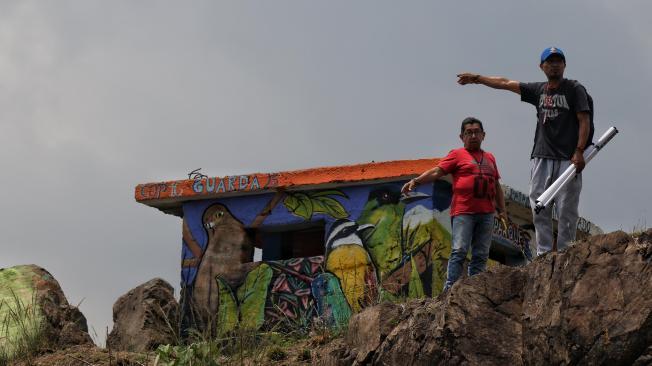
Leaders in Comuna 20 of Cali develop community tourism and rehabilitation strategies.
Foto:Santiago Saldarriaga. EL TIEMPO
They built a path, corrals for animals, drinking troughs for birds and redesigned a sentry box where the army and the M-19 used to confront each other.
Both Victor and Dani took part. Today they are leaders in promoting the park to locals and foreigners. Figures from the Secretariat of Tourism, a body that has helped promote the site and provided tools for community tourism, show that an average of 1,200 people visit the park every month. At least 10 tourist groups have been formed and there are already six guided tours. As Victor puts it: "It is something we are proud of, we did not do it for Petro, nor for Dilian, nor for any politician, but by and for us, because it is possible to have alternatives.
DAVID ALEJANDRO LÓPEZ BERMÚDEZ
Special Envoy of EL TIEMPO to COP16
berdav@eltiempo.com
Editor's note: This text is an artificially intelligent English translation of the original Spanish version, which can be found here. Any comment, please write to berdav@eltiempo.com

.png) hace 2 meses
26
hace 2 meses
26


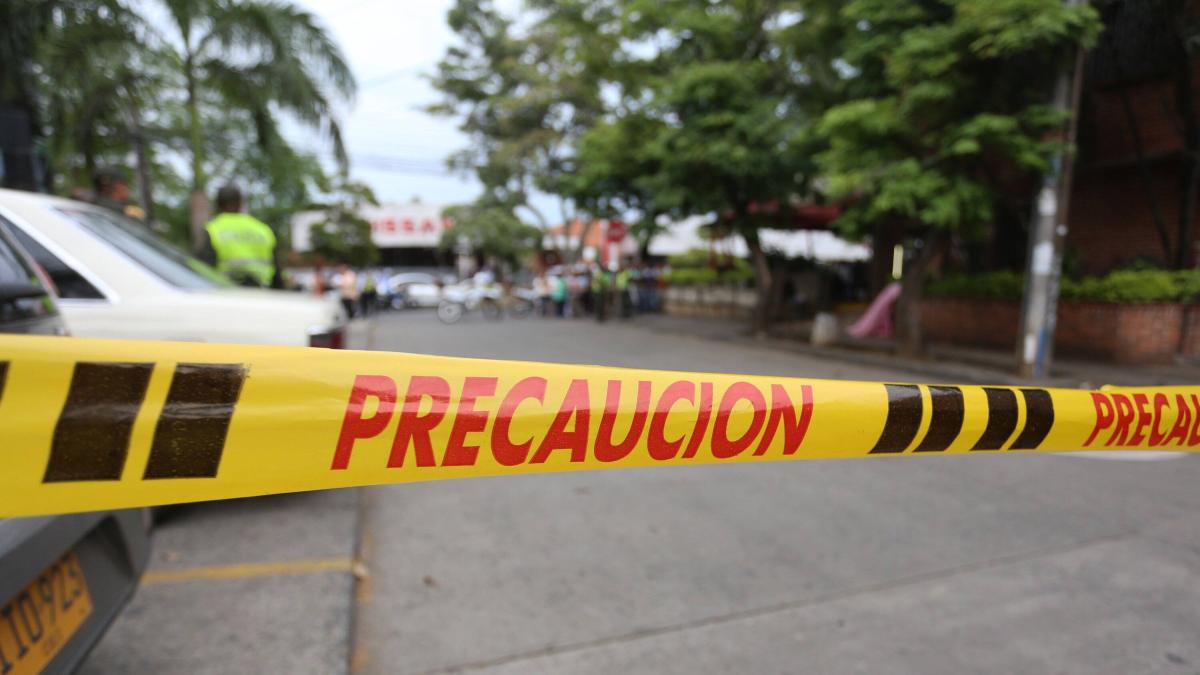

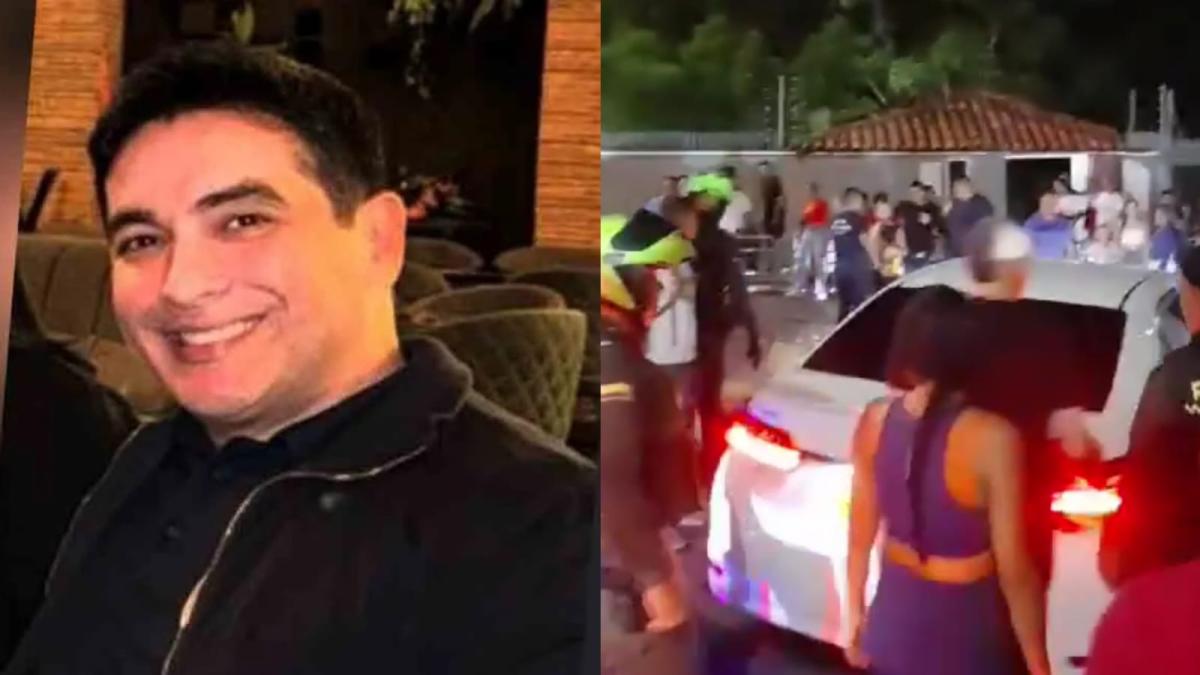
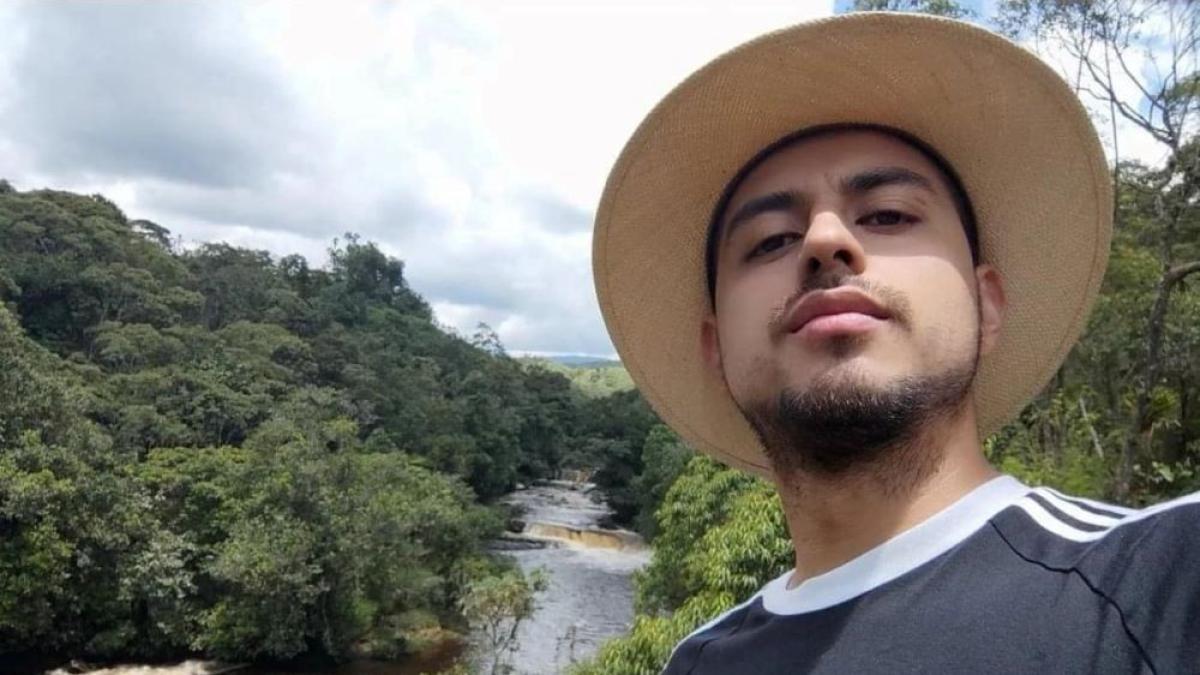
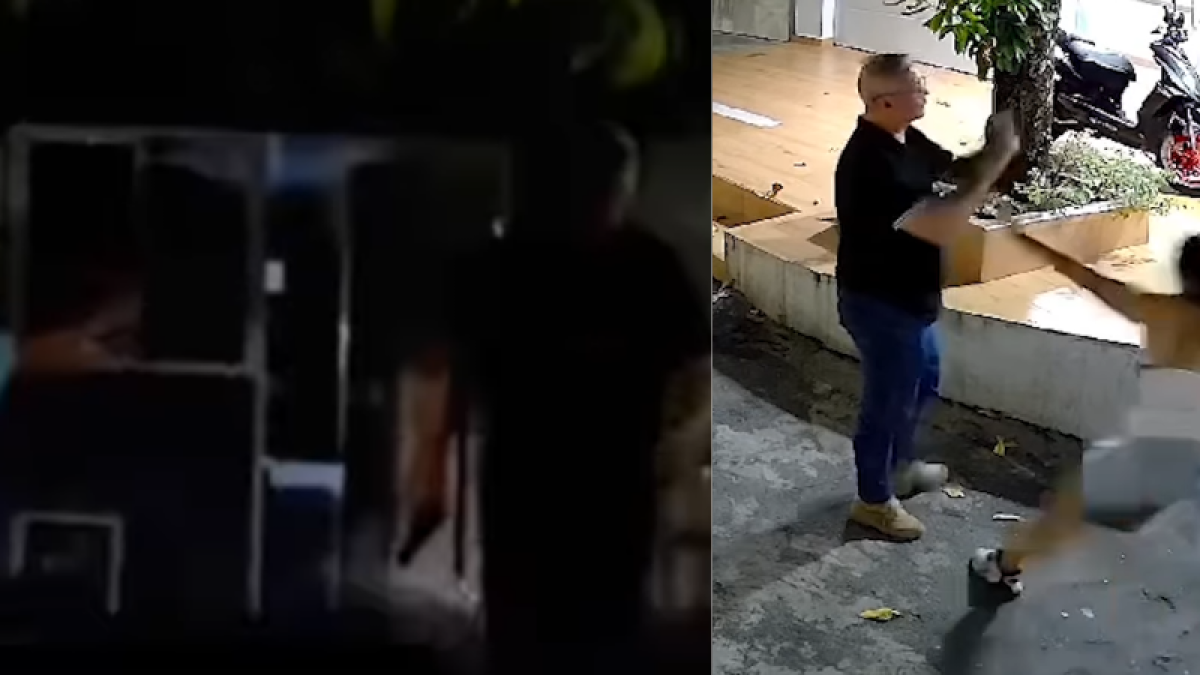
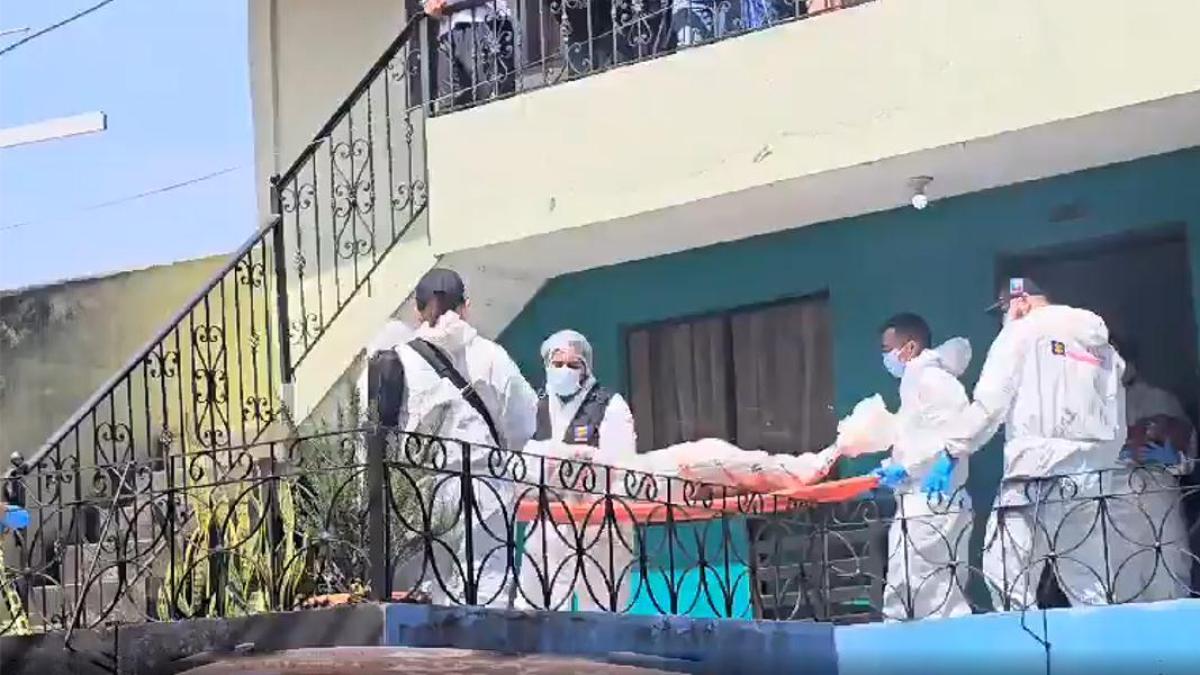
 English (US) ·
English (US) · 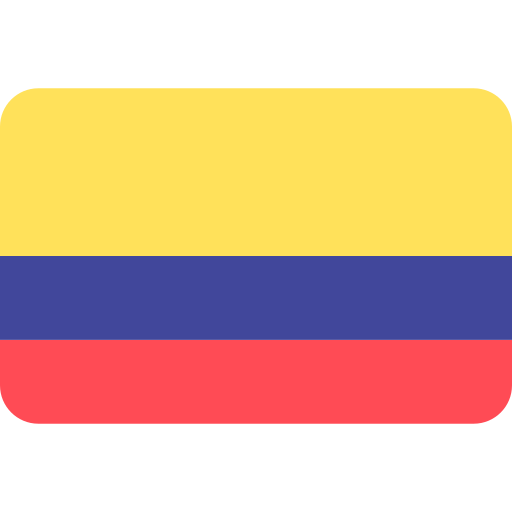 Spanish (CO) ·
Spanish (CO) ·